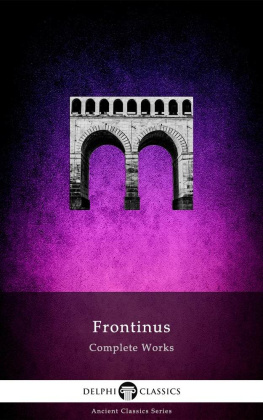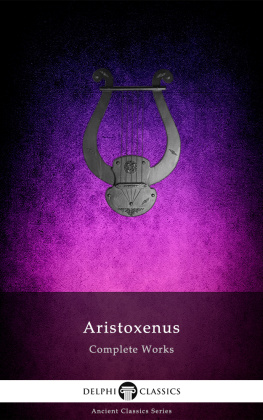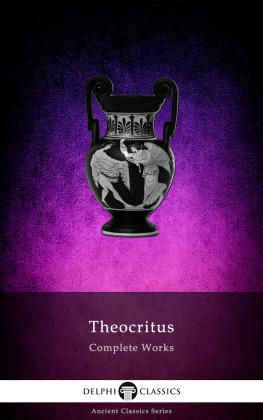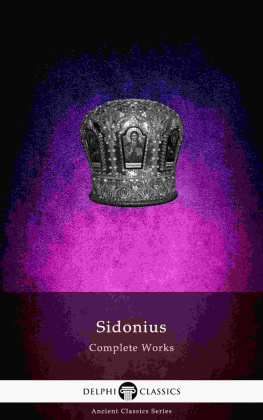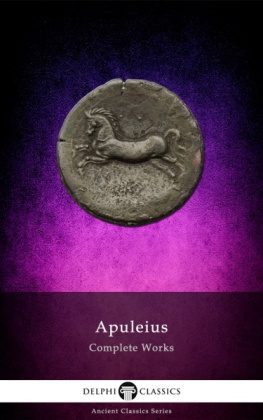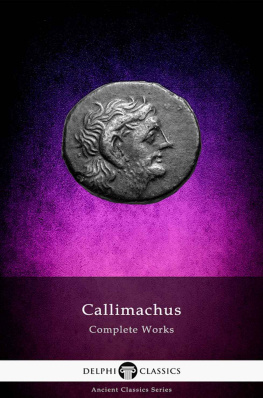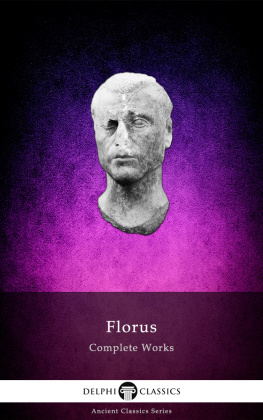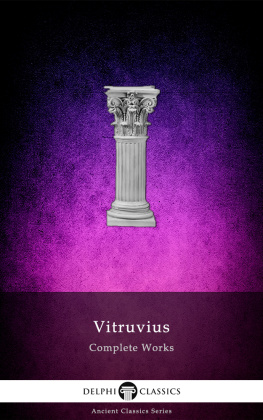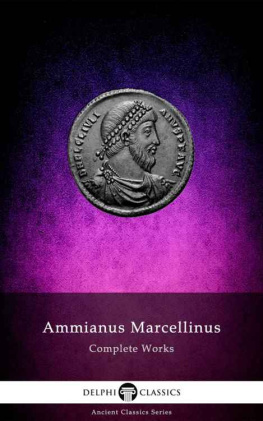The Complete Works of
FRONTINUS
(c. 40103 AD)

Contents

Delphi Classics 2015
Version 1

The Complete Works of
SEXTUS JULIUS FRONTINUS

By Delphi Classics, 2015
COPYRIGHT
Complete Works of Frontinus
First published in the United Kingdom in 2015 by Delphi Classics.
Delphi Classics, 2015.
All rights reserved. No part of this publication may be reproduced, stored in a retrieval system, or transmitted, in any form or by any means, without the prior permission in writing of the publisher, nor be otherwise circulated in any form other than that in which it is published.
Delphi Classics
is an imprint of
Delphi Publishing Ltd
Hastings, East Sussex
United Kingdom
Contact: sales@delphiclassics.com
www.delphiclassics.com
The Translations

The multiple arches of the Pont du Gard in Roman Gaul, modern-day southern France.
STRATAGEMS

Translated by Charles E. Bennett
Sextus Julius Frontinus (c. AD 40 103) was one of the most distinguished Roman senators of the late 1st century AD, who is now chiefly remembered as an author of technical treatises. In AD 70, Frontinus became a praetor and five years later was sent to Britain to succeed Quintus Petillius Cerialis as governor. He subdued the Silures and other tribes of Wales hostile to Roman invasion, establishing a new base at Caerleon for Legio II Augusta and a network of smaller forts fifteen to twenty kilometres apart for his auxiliary units. One of these forts would have been Luentinum, which controlled the gold mine of Dolaucothi, worked by numerous aqueducts. In 78, he was succeeded by Gnaeus Julius Agricola, the father-in-law of the famous historian Tacitus. His military life at this time would help provide material for his first literary work.
Stratagems (Strategemata) is a collection of examples of military stratagems from Greek and Roman history, compiled for the use of generals. Frontinus draws on his own experience as a general in Germania under Domitian, though similarities between the anecdotes he records and versions of other Roman authors like Valerius Maximus and Livy suggest that he drew mainly on literary sources. The authenticity of the fourth book has been challenged.

Bust of Julius Caesar (100-44 BC), one of the principle generals referenced by Frontinus throughout Stratagems
CONTENTS

Bust of Alexander the Great (356 BC-323 BC), another principle general referenced by Frontinus throughout Stratagems
BOOK I
Since I alone of those interested in military science have undertaken to reduce its rules to system, and since I seem to have fulfilled that purpose, so far as pains on my part could accomplish it, I still feel under obligation, in order to complete the task I have begun, to summarize in convenient sketches the adroit operations of generals, which the Greeks embrace under the one name strategemata. For in this way commanders will be furnished with specimens of wisdom and foresight, which will serve to foster their own power of conceiving and executing like deeds. There will result the added advantage that a general will not fear the issue of his own stratagem, if he compares it with experiments already successfully made.
I neither ignore nor deny the fact that historians have included in the compass of their works this feature also, nor that authors have already recorded in some fashion all famous examples. But I ought, I think, out of consideration for busy men, to have regard to brevity. For it is a tedious business to hunt out separate examples scattered over the vast body of history; and those who have made selections of notable deeds have overwhelmed the reader by the very mass of material. My effort will be devoted to the task of setting forth, as if in response to questions, and as occasion shall demand, the illustration applicable to the case in point. For having examined the categories, I have in advance mapped out my campaign, so to speak, for the presentation of illustrative examples. Moreover, in order that these may be sifted and properly classified according to the variety of subject-matter, I have divided them into three books. In the first are illustrations of stratagems for use before the battle begins; in the second, those that relate to the battle itself and tend to effect the complete subjugation of the enemy; the third contains stratagems connected with sieges and the raising of sieges. Under these successive classes I have grouped the illustrations appropriate to each.
It is not without justice that I shall claim indulgence for this work, and I beg that no one will charge me with negligence, if he finds that I have passed over some illustration. For who could prove equal to the task of examining all the records which have come down to us in both languages! And so I have purposely allowed myself to skip many things. That I have not done this without reason, those will realize who read the books of others treating of the same subjects; but it will be easy for the reader to supply those examples under each category. For since this work, like my preceding ones, has been undertaken for the benefit of others, rather than for the sake of my own renown, I shall feel that I am being aided, rather than criticized, by those who will make additions to it.
If there prove to be any persons who take an interest in these books, let them remember to discriminate between strategy and stratagems, which are by nature extremely similar. For everything achieved by a commander, be it characterized by foresight, advantage, enterprise, or resolution, will belong under the head of strategy, while those things which fall under some special type of these will be stratagems. The essential characteristic of the latter, resting, as it does, on skill and cleverness, is effective quite as much when the enemy is to be evaded as when he is to be crushed. Since in this field certain striking results have been produced by speeches, I have set down examples of these also, as well as of deeds.
Types of stratagems for the guidance of a commander in matters to be attended to before battle:
I. On concealing ones plans.
II. On finding out the enemys plans.
III. On determining the character of the war.
IV. On leading an army through places infested by the enemy.
V. On escaping from difficult situations.
VI. On laying and meeting ambushes while on the march.
VII. How to conceal the absence of the things we lack, or to supply substitutes for them.
VIII. On distracting the attention of the enemy.
Next page
